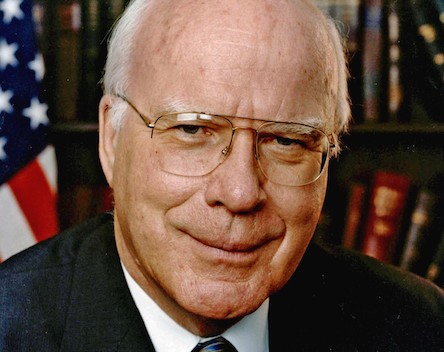Leahy Unhappy With ISP Answers on Prioritization

The smarter way to stay on top of broadcasting and cable industry. Sign up below
You are now subscribed
Your newsletter sign-up was successful
Sen. Patrick Leahy (D-Vt.), chairman of the Senate Judiciary Committee, was generally not happy with ISPs for failing to pledge never to engage in paid priority.
Leahy released responses from all the major ISPs to his request for that promise on Internet "fast lanes." Verizon and AT&T have already said they had no plans to do paid prioritization, and said that the FCC has the power to prevent non-user-directed prioritization on the consumer side if it chooses, though it remains a fairly common practice on the business side.
They also pointed to the fact that even Title II fans have recognized the value in some prioritization, like life-saving telemedicine over gaming.
Leahy was not assuaged by the answers. "They all maintained that they do not currently plan to engage in paid prioritization; an assertion I welcome. What they did not do was answer my call for a firm commitment that they will never engage in that behavior in the absence of clear rules prohibiting such deals. This is disappointing.”
He did give Comcast praise for its response, which included support for his bill that would ban paid prioritization,
"I appreciate that Comcast went further than the other ISPs by expressing support for my legislation with Representative Doris Matsui of California, which would require the FCC to ban paid prioritization agreements so that all ISPs are subject to such a rule."
Comcast is currently subject to no-blocking or discrimination rules until 2018 per its NBCU deal condition. Those FCC rules currently do not apply to other ISPs after a federal court invalidated them. Comcast is also trying to get the FCC to approve its proposal to merge with Time Warner Cable, which might include a no prioritization condition that, if it were not an FCC rule or congressional directive, would not apply to its competitors.
The smarter way to stay on top of broadcasting and cable industry. Sign up below
The "no fast lane" issue caught fire after FCC chairman Tom Wheeler proposed a "commercially reasonable" standard for a new anti-unreasonable discrimination Open Internet rule, though he has repeatedly pointed out that was a way to craft an anti-discrimination rule that would pass court muster without imposing what ISPs have consistently signaled was the nuclear option of Title II reclassification.
That option remains on the table, Wheeler has made abundantly clear. After the President weighed in strongly in support of Title II, it has appeared to gain traction as the FCC method of choice, perhaps in a hybrid application with the FCC's Sec. 706 authority to promote broadband deployment to all Americans.
At a net neutrality field hearing in Vermont in July, Leahy said paid priority must not be allowed in any new rules and he could support no FCC approach short of a flat out ban.
Contributing editor John Eggerton has been an editor and/or writer on media regulation, legislation and policy for over four decades, including covering the FCC, FTC, Congress, the major media trade associations, and the federal courts. In addition to Multichannel News and Broadcasting + Cable, his work has appeared in Radio World, TV Technology, TV Fax, This Week in Consumer Electronics, Variety and the Encyclopedia Britannica.

